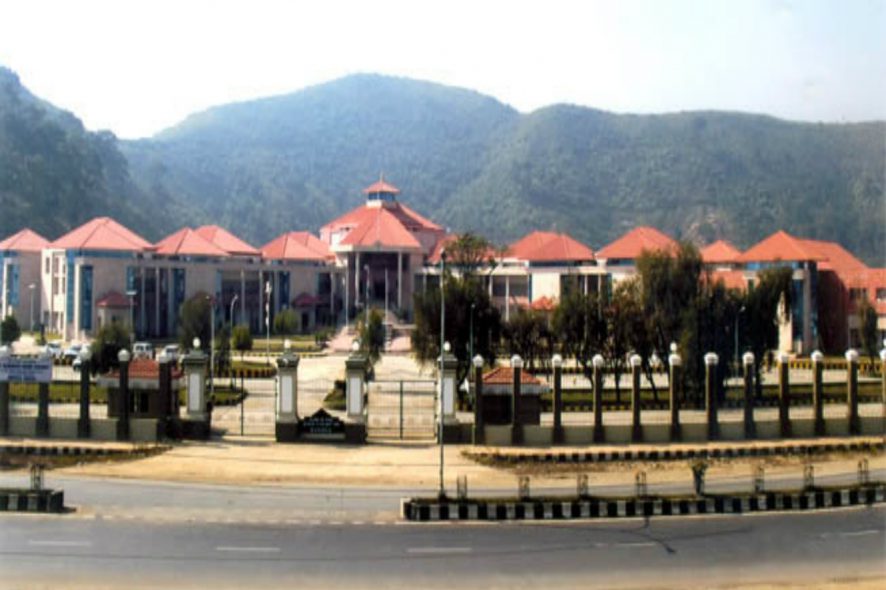Manipur High Court: In a petition filed under Section 482 of Code of Criminal Procedure for quashing criminal compliant filed before the Judicial Magistrate, 1st Class, Churachandpur, MV Muralidaran, J., observed that
“It was incumbent upon the court below to have first discovered the basic nature of the dispute which altogether involves question of actual payment.”
The petitioner 1 and 2 are the Chief and Secretary of Lamdan Village Authority. The respondent was the ex-Secretary of Lamdan Village Authority and had voluntarily resigned from the post on 21-10-2013.
The respondent challenged the proceedings of the Special General Body Meeting held on 08-06-2013 thereby appointing the present petitioner-accused 1 as Chief before the customary Court as well as before the Deputy Commissioner, Churachandpur , his objection was, however, rejected as the petitioner-accused 1 was properly appointed. A Civil Suit was also filed by the respondent to restrain petitioner-accused 1 from acting as Chief and declare him the Chief of the Village but he did not succeed in that as well. The present respondent then filed the criminal complained before the Judicial Magistrate, 1st Class, Churachandpur regarding cutting down of trees belonging to the common forest and selling them without the consent of the villagers.
The present petition was filed on the ground that the respondent had given the incorrect facts about the civil suit and had also filed a malicious complaint in order to harass the petitioner-accused 1 and failed to appear before the concerned Magistrate. There was a non-disclosure of material facts relating to payment of full transaction in a money claim.
The main issue was as to whether the petition filed by the complainant before the Judicial Magistrate, 1st Class, Churachandpur is confined to civil dispute and the course of action so adopted is abuse of process of the Court?
The Court observed that after perusal of the statement of the complainant-respondent and witnesses and careful scrutiny of records, it is established that the dispute relates to the civil nature, moreover, the respondent has concealed the material and relevant facts relating to the actual transaction that took place.
The Court relied on the judgment in the case of GHCL Employees Stock Option Trust v. India Infoline Ltd., (2013) 2 SCC (Crl) 414 wherein the Supreme Court had elaborately discussed the controversy in hand and held that
“There is no dispute with regard to the legal proposition that the case of breach of trust or cheating are both a civil wrong and a criminal offence, but under certain situations where the act alleged would predominantly be a civil wrong, such an act does not constitute a criminal offence.”
The Court was, of the opinion that the lower Court failed to determine the nature of dispute first which was predominantly of civil nature and was deliberately categorized as a criminal offence in order to wreck vengeance.
The Court also relied on the judgment in the case of Inder Mohan Goswami v. State of Uttaranchal, (2007) 12 SCC 1, wherein it was held that,
“The High Courts have been invested with inherent powers, both in civil and criminal matters, to achieve a salutary public purpose. A court proceeding ought not to be permitted to degenerate into a weapon of harassment or persecution.”
Applying the said principle to the case at hand, the Court observed that
“The inherent power under Section 482 CrPC is not to be exercised by this Court generally to stifle the legitimate prosecution but here the prosecution has been launched, in concealment of material facts in the name of wrecking vengeance on the applicants”.
Perusing the statement of the complainant and witness recorded under Sections 200 and 202 Cr.P.C. respectively, in support of the complaint the Court came to the conclusion that
“no whisper regarding manner of committing forgery has been made which may give credence to the money claim. Perusal of the record further shows that as per annexures appended to the present application, the matter has been finally settled amicably. It is surprising that after the Petitioners had made it specific allegations regarding the respondent.”
The Court noticed that the complainant “very cleverly chose to brand a civil dispute as criminal offence”. It is obvious that the entire proceedings initiated at the instance of the complainant is in abuse of the process of the Court and the ends of justice requires that such proceedings which have been initiated with an ulterior motive should not be allowed to go unchecked as that would adversely affect the ends of Justice. When the dispute in question is discovered to be predominantly of civil nature then an attempt to make it criminal offence should be thwarted and discouraged. The payment made in full satisfaction of the transaction is to be ascertained on the face of evidence and documents which may be scrutinized by the civil court of the competent jurisdiction.
“The complainant instead of choosing proper forum for realization of the claimed outstanding amount, has chosen a different path which will not serve the ultimate purpose of full payment. The dispute in question is purely of civil nature and the proceedings in question are discovered to be misuse of the process of the Court and the same cannot be allowed to go on any further.”
Allowing the petition, the Court held that the entire proceeding was initiated with an ulterior motive and is an abuse of the process of the Court and the ends of Justice and therefore is liable to be quashed.
[M. Khuripou v. Pamei Dimpu, Crl. Petn. No. 24 of 2014, decided on 28-02-2020]
Appearance made before the Court by:
For the Petitioner/Accused (s) : Advocate N. Umakanta
For the Respondent : Advocate S. Abung







